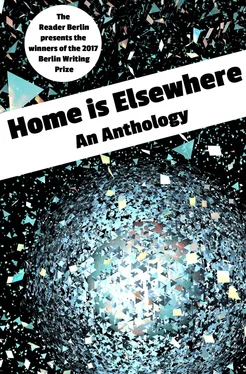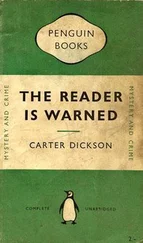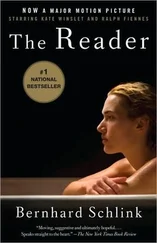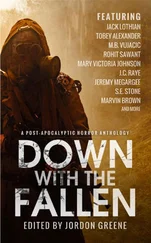The dingy leaden heating vents framing the floors of every room in Nana’s house were trapdoor treacherous. A moment of careless distraction let that wide toothy grin of a vent claim its prize. When he fell, I heard the clatter of black hooves all the way down. I wept and gnashed my teeth. Nana took her time coming to check, took in the sight of my tear-dripping face, my knees straddling the vent, all five fingers worked through the grate like a prisoner. Shook her head. That night I went to sleep with the sound of his whinnying reaching up into my dormer room every time the heat kicked on, a distant squeal echoing over her cold pine floors. I couldn’t tell whether it was pain or pleasure.
Years later, I realized how easy it would have been to lift the cover and reach into the vent. To try. Asked her why she hadn’t. She shot a hole through me with her obsidian eyes, said, “What would have been the sense in that?”
*
Nana’s sleepless nights lengthened as time ran his sharp fingernails over her forehead, under her eyes, around her mouth. The doctor in Elsewhere gave her a complicated cocktail of pills. She refused to take them, refused to take my calls. I had to get on a plane.
“If I take them, I’ll forget,” she told me over the whole trout laid out for his wake, staring up at the dining room ceiling. “Then what use will it all have been?”
Nana’s nearest neighbors – across the dry creek bed and six minutes southeast toward Elsewhere at a dead run – had real horses. The kind of steady beasts you could turn loose in the morning and trust to come home for dinner. Trigger, Arrow, Catapult. Names given in their wild youth, names that belied the placid adults they’d grown into. The summer after the stallion disappeared, I learned to ride in return for my puny help hauling water and shit. Nana turned me loose in the morning with sleep-furred teeth, my hair pillow wild. I spent all day surrounded by snug horseflesh, ran home as the sun sank behind the ash trees, hair decorated with accidental alfalfa and daisies on purpose, heavy with the scent of manure, horsehair and sweat.
Nana believed in real food. Peanut butter you had to stir for hours in ten-year-old time before you could spread it. Bread she made herself. I spent most of those gift-wrapped summers with a crosshatched section of gooey peanut butter and honey on thick crumbly brown bread wedged into one or another of my pockets.
Every night was some newly dead animal stretched out on her dinner table. Occasionally something she’d shot herself. Jackrabbits in her garden. She’d climb up on the roof with the shotgun and wait. Her huge lopsided table was the bench where I learned to judge the origins of what I ate.
“What are you sinking about?” she’d tease across the table when I’d lost myself in the map of furrows on my own forehead.
“The horses,” I always told her. She’d level her Beethoven look and shove another chicken wing or leg of lamb down the slope of the table in my direction.
Even then, Nana had nightmares. Paced up and down the starlight. Her bare feet were silent, but the warped old floorboards creaked in the rhythm of a heartbeat, the particular onetwo, onetwo, onetwo, onetwo of a majestic stallion’s walk. That was the summer he first appeared to me, the matched ebony curves of his neck and tail bobbing through the full-moon shadows of my dormer room. When I gathered my courage to tell Nana, spaghetti arms crossed against explanation, she flashed. “Well of course. They never leave us.”
*
In my junior year of high school, I got clobbered upside the head with a letter, a reply pressed in dingy black on pure white, telling me I wasn’t eligible for the scholarships, the tuition waivers. I wasn’t enrolled in the tribe. Nana had never enrolled any of us. I called from my mother’s one-bedroom in Denver, listened to Nana sigh down the line from Elsewhere.
“Well, what’d you expect? You’re not Native.”
I bit off the black licorice anger pushing against my eye teeth. “Partly,” I tried.
Thick molasses silence. “But so?” I steadied my butterfly voice. “What’s the problem with taking money from the white man?”
“Honey, you are the white man.”
So I went 60 miles north to study equine medicine at Colorado State. Had to pay my own way, flattened under an anvil of loans. Nana and I didn’t talk for months. Or that’s how I’d tell it. She’d say we communicated plenty, just not with words.
I could always hear the onetwo onetwo creak of her steps across my floor at night.
*
“You moved to Chicago to work with horses? There any horses in that city?”
She had a point.
“I’m not actually working on horses, Nana. I mean I am, but in a lab. Research. Making new medicines.”
“Research on horses with no horses?”
“They’re there, we’re here. We get samples.”
Her snuffling down the line.
“That how vegans do it these days, is it?”
She always had a point.
One summer came the plague of crickets, right out of Nana’s worn Old Testament. They rose out of the black soil in waves, crunched underfoot with every step. Chirped a never-ending alarm. I had nightmares about them mowing the grass to dust, turning the sea-waving prairie into desert, baring the skeletons of trees and horses. But they were mostly interested in eating each other. Killing one brought ten more little cannibals to the scene of the crime. The whole world smelled like rotten meat.
That was when I stopped. Started eating just the bright vegetables around the rim of her dinner plates.
First night: “You sick?”
Second night: “You must be sick.”
Third night: “You are not getting up until you eat every last bite.”
Told her I couldn’t. Told her the smell of dead crickets turned my stomach.
She pointed her knife. “That animal made a sacrifice for you. Leaving it lying there is disrespect.”
“Oh yeah? Is that in your Bible?”
Had to bite the tongue that let those words loose, squint to keep my eyes from widening.
She pressed her lips together until they disappeared, left the table on silent feet. Left the dishes flat, the limp liver cooling and congealing in its bile. It was the first time in my life I had to clean up someone else’s mess.
That night Nana was quiet. I split myself a headache straining to hear her footfalls through the sleepwalking house. When the moon rose to frankenstein the whorled shadow of my wrought iron headboard across the floor, I crept down, two feet on each stair. I had to use both hands and all my yellow pencil muscle to lift the huge Bible from its place on the shaky coffee table. Laid it out on the floor, started at the beginning. Slid across the pine to catch the pooled light of the moon waving through the window glass.
In the morning, I presented her my prize. A shaky cursive sentence copied onto the back of a spangle of red paper I’d taken from between the pages. Red for Jehovah’s Witnesses. Nana took in the bowl I’d set on the table for her, the paper pooled like blood in the bottom. Read it once, eyes flying, then again:
“And God also told them, ‘Look! I have given you every plant that grows on the earth, and every tree that bears fruit. They will be your food.’”
Hard proof of biblical vegetarianism. She gazed at me while I balanced on my stool and chanted my magic spell for bravery: Blackjack Chinkapin Sassafras. Blackjack Chinkapin Sassafras. Then she lit up. A real, adult smile.
For the rest of that summer, she never set meat on my plate.
*
I sit on the geriatric porch swing, the wail of its rusted chains filling the silent night. I wait for it to pull loose from the ceiling and crash to the rotted floorboards. Too weak now to bear the weight. Wrapped up to my ears in an old blue and white horsehair blanket, the January air reaching in and yanking my lungs up against my collarbone. The house behind me is dark and empty. It is finished. It is only beginning.
Читать дальше












